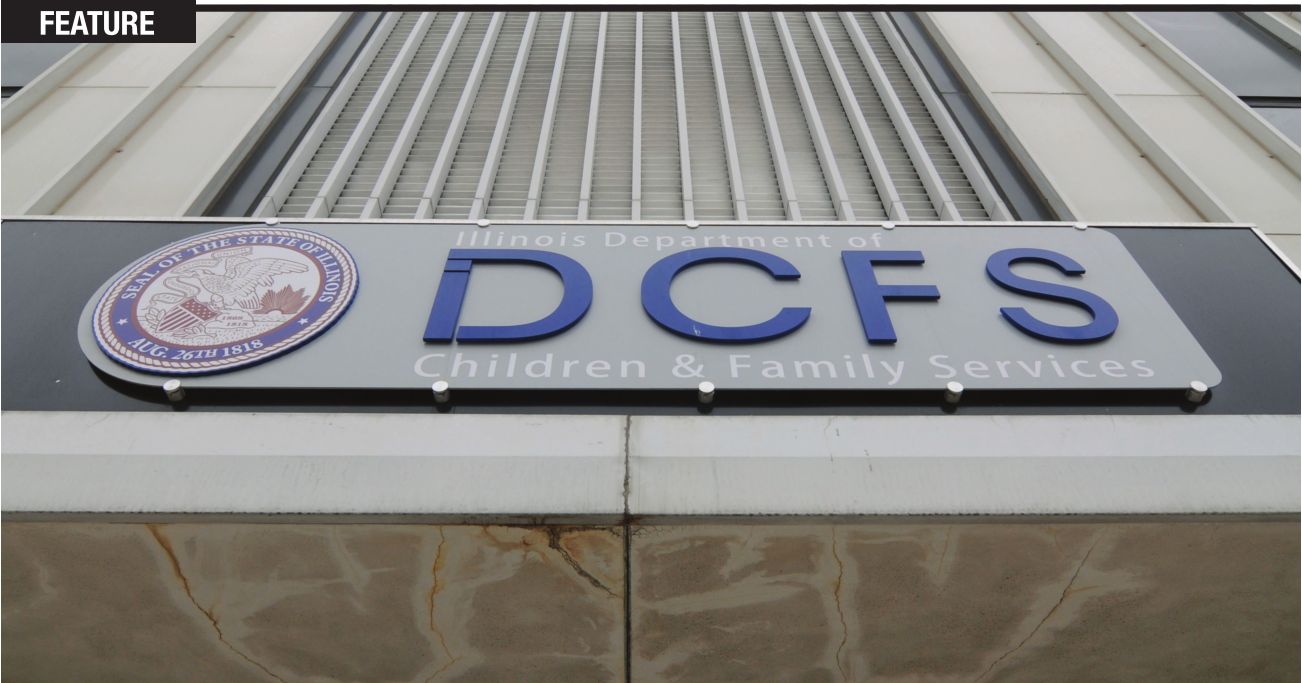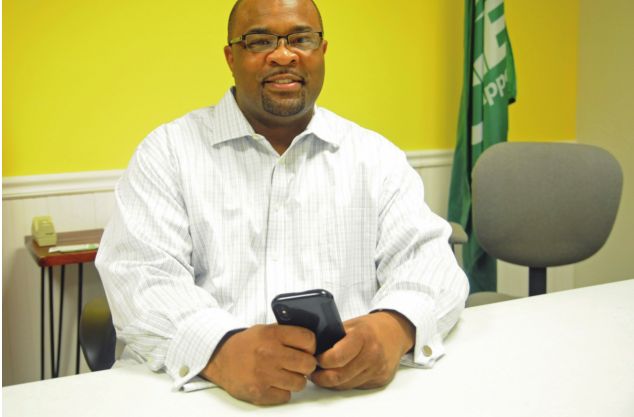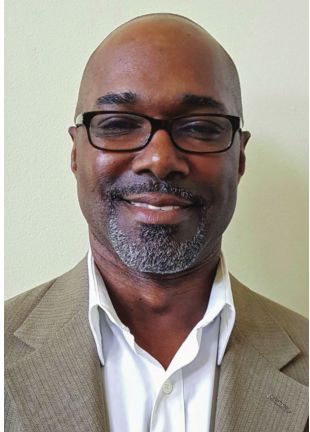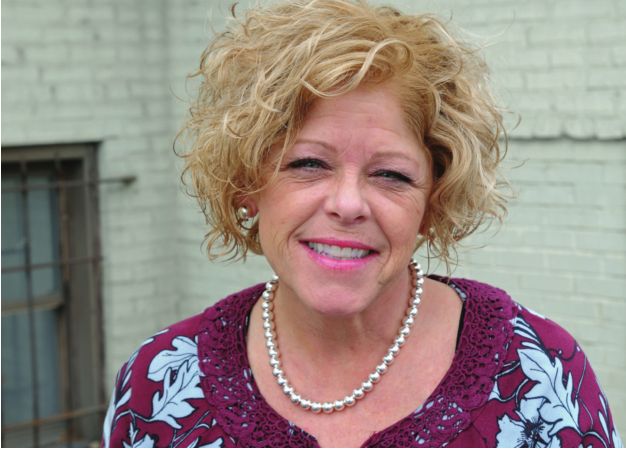
DCFS caseworkers have a tough job. Inconsistency at the top and understaffing make it worse.
With 15 directors in 16 years, court-ordered compliance, government reviews, stormy legislative hearings and several recent highly publicized deaths of children, the Illinois Department of Children and Family Services (DCFS) has become everyone’s punching bag.
The newly nominated DCFS director, former department employee Marc D. Smith, faces the unenviable task of trying to run the state’s child welfare agency under intense scrutiny. While public attention will be focused on Smith in the coming months, the department’s frontline workers will continue to feel the pressures of their demanding jobs. The stakes couldn’t be higher.
If you think DCFS workers need to develop a tough hide to do the work, you’d be right. But they also consider the job to be a calling, a career to which they feel an emotional attachment.
“I don’t think people comprehend how much we care,” said Heidi Creasy, a Peoria area investigator who has been with DCFS for 10 years. “When something goes wrong, no one is more distraught and upset than we are. I have one particular case that I will never get over. Ever.”
A 2008 case still weighs heavily on Stephen Mittons, a 24-year DCFS child protection investigator who works on Chicago’s south side.
“We come into contact with families at their lowest point. You can’t help but have a human side and look at a family with an empathetic eye,” Mittons said. “This is a very high-stress, high-paced job and you really have to be invested in what it is you do in order to stay in this job any length of time. To a person, the staff members that you will encounter on a day-to-day basis at DCFS are dedicated, highly motivated, and their intent is to do the best they can with the information they have.”
Arnold Black has been with DCFS for 12 years and is a Champaign-area child protection supervisor. He remembers a case where an investigator put in tremendous extra effort to heal a long-standing family rift in a time of crisis.
“A child was going to pass away at the hospital, and the investigator was able to broker the relationship between the mother and grandmother so the grandmother could meet the baby before it passed,” Black said. “That’s something I will never forget.”
“You can never really rest”
DCFS supervisor Black said there are never enough hours in the day to accomplish what needs to be done, and it causes a tremendous amount of stress.
“I’m
blessed to be able to turn off the stress when I go home, but we have a
lot younger work force now and we have to remind them to take care of
themselves, to do things that interest them outside of the workplace,”
Black said. “Because if not, they won’t be able to turn it off.”
Mittons,
the Chicago-based investigator, said there are three response codes
that trigger his investigations: normal, where he has 24 hours to
initiate the investigation; emergency, where he must respond within two
hours; and action needed, where some type of response must be made
within 15 minutes.
“At
any given time my day can be interrupted by an emergency or
actionneeded case where I have to drop what I am doing at that point to
turn my attention to that new case,” Mittons said. “In this job, you can
never really rest and think it may be an easier case. You never really
know what is going to be behind that door unless you knock on it.”
Investigator
Creasy said she walks away from each situation hoping that she had all
of the input she needed to make the right decision. But even a case
where an investigator finds nothing wrong can come back to haunt DCFS,
and Creasy said that’s the result of unrealistic expectations for the
agency.
“Just because I
had contact with a family doesn’t mean that the kid is a ward of the
state,” Creasy said. “If somebody calls in a report and says a family
doesn’t have food, I go out and check for food. There’s food, the
refrigerator is full, there’s milk, there’s formula, there’s everything,
then something happens to that kid later in the year. That goes on the
list that we had involvement and failed the family.”
Black,
Mittons, Creasy and most DCFS employees are members of the American
Federation of State, County and Municipal Employees (AFSCME) Council 31.
A DCFS frontline worker was the victim of a homicide recently while on
the job, and Council 31 regional director Anne Irving said it’s a danger
that department employees face every day.
“You
have somebody walking into a home where there may well have been
violence already, and they are going in with just their notebook and
pen,” Irving said. “Workers will talk about sleepless nights, that
constant sense that they are responsible for the safety of all of the
kids in their caseload.”
The
constant on-the-job stress faced by DCFS workers can lead to anxiety,
depression, substance abuse issues, burnout and even post traumatic
stress disorder (PTSD), according to Mary Crisler, a psychiatric unit
nurse practitioner at HSHS St. Mary’s Hospital in Decatur. Any of those
issues can affect on-the-job performance, she said.
“Your
judgment could at some point become clouded, which could make things
worse,” Crisler said. “Maybe you’re not overseeing the things you should
be overseeing, you are not looking at it from the right perspective, maybe you are neglecting to follow through on certain things that need to be done.”
“You
can be in the job for a number of years, you love your career and the
people you work with, but you can still have something happen, or
something builds over time, that can trigger an emotional break,”
Crisler said. “Individuals who supervise these workers need to step back
and look at things from the worker’s perspective. Make sure that signs
and symptoms are being noticed, they are not just suddenly hit with
these issues.”
“Children’s lives are at stake here”
When
DCFS investigator Mittons joined the agency 24 years ago there were
approximately 4,600 agency staff statewide. Although the agency has made
great strides recently in hiring frontline workers, there are now
approximately 2,600 DCFS workers in Illinois, he said, a number
confirmed by the DCFS Fiscal Year 2020 budget request.
“I
think DCFS is barely handling its mission because of the
understaffing,” Mittons said. “This is a job where you have to pay full
attention to what it is you’re doing at that point in time. Multitasking
can get you into difficulty.”
“The
legislators, even though they are well-meaning, continue to add items
or issues to the DCFS plate. I should be able to go into a home and
assess risk and safety,” Mittons said. “But at the same time I’m also
checking to see if a dog is immunized, or if Grandma in the corner is
well.”
Supervisor
Black acknowledged that staff hiring progress has been made, but said
the state needs to play catch-up with family resource funding as well.
“Because
our resources are limited, sometimes services get started much later
than they should for families that need domestic violence, drug and
alcohol, or mental health services to get rid of some of those risk
factors,” Black said.
Investigator
Creasy has seen the recent surge in hiring, which was started by former
Gov. Bruce Rauner’s administration and would continue under the Fiscal
Year 2020 budget proposed by Gov. J.B. Pritzker. The proposal calls for a
$1.26 billion DCFS budget, $75 million more than this year, and has
been touted by the Pritzker administration as the largest single-year
increase the agency has had in more than 20 years.
“I
think DCFS this year has done an absolutely phenomenal job of getting
us staffed,” Creasy said. “It’s taken a while to get there, but things
are looking better.”
AFSCME
Council 31 has worked closely with the previous and current
administrations to hire more DCFS investigators, who start at $52,524
per year, and get caseload numbers reduced per employee. Many people
hired as investigators don’t make it through training, and AFSCME’s
Irving said the union and management came up with a solution to help
abate that problem.
“They
are able to hire people as investigators even when they are at head
count (fully staffed) knowing that they are going to have a vacancy
soon,” Irving said. “They get them trained, so when a vacancy opens up
they can slot somebody in who is already a trained investigator.”
Staffing
levels at DCFS have long been an issue. The American Civil Liberties
Union (ACLU) filed a class action lawsuit in the 1980s against Illinois
that resulted in a 1991 consent decree. That ruling required DCFS to
maintain specific staffing, caseload and child service levels. But the
ACLU had to go back to court in 2015 and again last year when it was
discovered that Illinois was not adhering to the consent decree.
“There’s
one particular group of children who have really high mental and
behavioral health needs who have suffered, so we went back to court to
address specifically the lack of services and resources the department
provides for those children,” said ACLU staff attorney Claire Stewart.
“Children’s lives are at stake here. It’s not just the worst possible
scenario, which is the death of children, which is happening. Children
are suffering in so many other ways as well.”
Families
in poverty are another casualty of the long-term low staffing and
resource levels. The Family Defense Center, based in Chicago, is a legal
aid nonprofit that only works with DCFS cases.
“What
we are concerned about is getting parents and families help when they
reach out to the state, and not criminalizing or punishing them for
their difficult life circumstances,” said Family Defense Center
executive director Rachel Ruttenberg. “Because the system is so poorly
managed and there are so few resources for prevention and to assist
families when they need help, you get more and more families who are
being investigated and are getting findings of these low-level child
neglect allegations due primarily to poverty.”
Gov. Pritzker’s Fiscal Year 2020 budget proposal would add 126 more DCFS direct service staff, including child protection specialists
and child welfare specialists, plus an additional $10 million to expand
case management and other services to families.
The “tyranny of anecdotes”
DCFS
has had 15 directors in the past 16 years. Crisis service agency
director and former DCFS employee Marc D. Smith will become the next
agency director if his nomination by Gov. Pritzker is approved by the
Illinois Senate.
“Each
director wants to put their own stamp on things, they all have their
own vision,” said DCFS investigator Mittons. “Then the agency starts to
move in that direction, which may be a 90-degree turn from the director
you just had. So sometimes you see this agency kind of jerking one way
or the other as it tries to reevaluate or redefine its mission.”
The ACLU thinks the number of directors with short tenure is at the heart of many recent DCFS issues.
“Our
more recent experience with the department has been very frustrating
and disappointing with the revolving door of directors over the past 10
years,” said the ACLU’s Stewart. “We had several years of really
positive improvement during a period where we had one director for about
10 years and were able to move thousands of kids out of the system and
improve safety.”
That
“one director for about 10 years” was Jess McDonald, who was the DCFS
director from 1994-2003 during the Jim Edgar and George Ryan
administrations. McDonald was a DCFS caseworker during the 1970s.
“There
is no such thing as ‘the good old days,’” McDonald said. “We used to
refer to this in the department as the ‘tyranny of anecdotes.’ One case
would essentially color the entire department, including the public and
private sector. There were always cases that were notorious for doing
that.”
McDonald said
that when there isn’t consistent leadership, DCFS doesn’t have a clear
vision or accountability for that vision, and the staff is forced to
deal with things on a “wing it” basis. He said that ideally a DCFS
director should come from the ranks, and a “kinship” needs to be
developed at the agency so employees want to stay and leaders can be
grown within the system. But McDonald said that, regardless of who’s in
charge, the safety of children needs to be priority number one.
McDonald added some words of advice for the agency as it deals with the latest rounds of tragedy and scrutiny.
“You
can’t manage public relations in the middle of a tragedy. What’s
missing, more often than not, is a strategy for communicating to the
public using the media as a source of that education effort, to make
sure everyone knows exactly how the agency is performing,” McDonald
said. “Transparency has to be a major component of your communications
strategy.”
Officials
from DCFS and Gov. Pritzker’s press office did not respond to a request
for an interview with or statement from acting director Smith for this
story.
“Privatizing some services has hurt immensely”
Supervisor
Black said the privatization of many intact family services since 2012,
those intended to help keep children and families together when they
are part of the DCFS system, hasn’t been working as it should.
“We
have had private partners that closed their doors, or there gets to be a
long waiting list for those services,” Black said. “One private agency
hired younger staff who didn’t have the experience, and they had so much
turnover that they had to close their doors after only three years.”
Investigator Mittons has had similar experiences in the Chicago area.
“Privatizing
some services has hurt immensely,” Mittons said. “We often find
ourselves identifying families that need further services from our
agency, but we often have to turn around and farm out the work to some agencies which don’t quite have the same level of expertise and education.”
AFSCME’s
Irving said the union has encouraged DCFS to take some of the work away
from private agencies and have DCFS staff work on the difficult cases.
That’s a suggestion the Pritzker administration has taken to heart.
“Given
the department’s intense focus on Intact Family Services, it is our
intention to move 10 percent of the high-risk cases back to the
department from the private agency providers.... This will allow the
agency to more closely focus and monitor the highest risk intact cases
and ensure safety for children and families,” said an entry in Gov.
Pritzker’s FY 2020 Budget Briefing.
On
March 18, two-year-old Ja’hir Gibbons of Chicago was beaten to death
just two days after a caseworker from a private agency conducted a home
visit. Seventeen-monthold Semaj Crosby died in 2017 in a highly
publicized case involving a private agency in Joliet. This February,
two-year-old Ta’Naja Barnes of Decatur was killed. Her case was also
being handled by a private agency working on contract with DCFS.
A
recent DCFS Inspector General’s report cited understaffing and
“excessive investigative caseloads” as contributing problems in such
cases. On March 27 Gov. Pritzker asked the University of Chicago’s
Chapin Hall policy research center to conduct a comprehensive review of
DCFS’ Intact Family Services Unit, the part of the department that
handles the private agency services in question.
“I felt that we had to do better”
The
late Ta’Naja Barnes lived in State Rep. Sue Scherer’s district. Scherer
called for a special House Adoption and Child Welfare Committee hearing
into the child’s death.
“I felt that we had to do better” for the children involved in the DCFS system, Scherer said.
Scherer
is cosponsoring a bill with State Rep. Sara Feigenholtz, D-Chicago to
improve several areas of the law that pertain to DCFS. The legislation
would require another level of review before a private agency could ask a
judge to return a child to a home. It would also provide six months of
family services from the time a child is returned to his or her mother,
rather than measuring those six months of service from the time a child
is placed in temporary foster care prior to being returned home.
Scherer’s
bill would place investigative priority on all cases brought to the
attention of DCFS by those who are required by law to report suspected
abuse and neglect. The legislation would also require that all children
receive a well-care checkup, whether they are involved directly with
DCFS or a private agency, so another set of trained eyes could examine
those children for signs of abuse or neglect.
Scherer
is optimistic the bill will pass, and hopes it will help DCFS employees
like Creasy, Mittons and Black to better safeguard Illinois’ children.
“I’ve
been a teacher for 35 years and a number of times I have said to a DCFS
worker, ‘Honest to God, you just have a special place in heaven,’”
Scherer said. “I don’t know how they do their jobs, it’s got to be so
tough.”